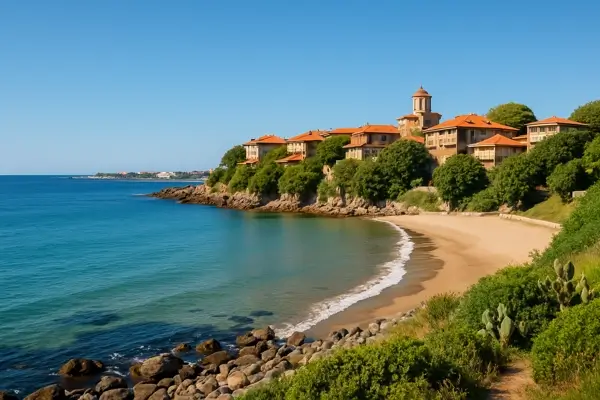
One of Europe’s Oldest Countries
Bulgaria is one of the oldest countries in Europe, with a history that spans over 1,300 years. The country was founded in 681 AD, making it one of the longest-established nations in the region.
The Cyrillic Alphabet
The Cyrillic alphabet, used by many Slavic countries today, was developed in the 9th century by two Bulgarian missionaries, Saints Cyril and Methodius. It is still the official script in Bulgaria and many other countries like Russia, Ukraine, and Serbia.
Rich Cultural Heritage
Bulgaria is known for its rich cultural traditions, including its music, dance, and folklore. The Bulgarian National Folk Ensemble and the Nestinarstvo fire-dancing ritual are just a few examples of the country’s unique cultural practices.
The Rose Valley
Bulgaria is famous for its rose oil, and the Rose Valley near the town of Kazanlak produces more than 85% of the world’s rose oil, which is used in perfumes and cosmetics. The annual Rose Festival in Kazanlak celebrates the harvest and is a major cultural event.
Rila Monastery
The Rila Monastery, a UNESCO World Heritage site, is one of Bulgaria’s most famous landmarks. Founded in the 10th century, it is a spiritual and architectural gem, known for its stunning frescoes and religious significance.
The Thracian Tombs
Bulgaria is home to the Thracian Tombs, ancient burial sites that date back over 2,000 years. The Thracian Tomb of Kazanlak is a UNESCO World Heritage site and is known for its vibrant frescoes, depicting scenes of daily life and the afterlife.
The Balkan Mountains
Bulgaria is known for its Balkan Mountains, which stretch across the country from west to east. The Vitosha Mountain near the capital, Sofia, is a popular destination for hiking and skiing, offering spectacular views of the surrounding landscapes.
Bulgaria’s Yogurt
Bulgaria is credited with creating yogurt, thanks to the Lactobacillus bulgaricus bacteria, which is native to the region. The country is renowned for its high-quality yogurt, which is a staple of the Bulgarian diet.
Rich History of Empires
Throughout history, Bulgaria was the center of the powerful First Bulgarian Empire (681–1018) and Second Bulgarian Empire (1185–1396), both of which influenced much of Eastern Europe. The country’s heritage is marked by its contributions to Byzantine culture, art, and politics.
The Bulgarian Monarchy
Bulgaria was a monarchy until 1946. The last Tsar, Simeon II, was exiled during the communist regime but later returned and even served as the Prime Minister of Bulgaria from 2001 to 2005.



